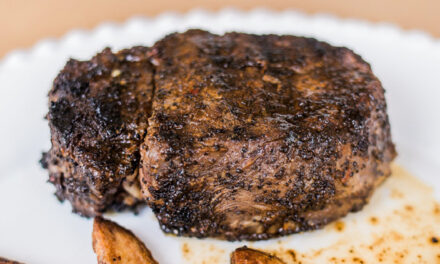If it feels like eating one cookie will lead to devouring the whole package or that you can’t be trusted around sweets, you may feel like you’re addicted to sugar. When it’s normal that you feel out of control around treats, excluding sweets or remaining abstinent from sugar may seem like the most sensible solution.
There is currently no scientific evidence to support that food, sugar included, is addictive. The research on humans and food addiction thus far is based upon the Yale Food Addiction Scale, a tool that includes 17 (out of 26) statements that could also reflect chronic dieting. The failure to control for two very important variables—the impact of dieting and restriction on eating behaviors—has led to major holes in food addiction research.
Deprivation, dieting, and restriction are major drivers of compulsive or binge eating. Imagine a pendulum with one side representing deprivation and restriction and the other representing overeating and out of control feelings with food. The pattern of the pendulum is predictable in that the further the weight is pulled toward the deprivation side, the further it will swing in the opposite direction.
Such is the pattern with diets or attempts to exclude certain foods from your diet, especially pleasurable foods like sweets. However, when restriction and perceived threats of deprivation end, overeating and bingeing behaviors decrease significantly or even end. Unconditional permission to eat allows the weight of the pendulum to remain in a resting position.
Scientists have observed similar brain activity in rodents in response to addictive substances and in response to food. There are a couple of catches, though…This type of response to food happened only in settings of food deprivation. The brain changes that led to needing increasingly more of an addictive substance like cocaine were not observed in response to sugar.
In the same way, humans who are accustomed to eating without restraint haven’t the felt sense that food has power over them. Instead, they reach a stopping point with eating and tend to choose a variety of foods. Still, the brain lights up in response to pleasurable food as well as other enjoyable experiences such as listening to music, laughing with a friend, or petting a puppy, but we don’t blame addiction for the pleasure derived from these behaviors or experiences.
Who could blame someone for deciding to avoid sugar following repeated out of control experiences with overeating sweets? While subscribing to the idea that sugar addiction is a problem with a simple solution, cutting it out entirely is likely unsustainable and may prevent a peaceful, freeing, and satisfying relationship with food. Despite unanswered questions in food addiction research, it is clear that more restriction may only perpetuate the problem of feeling addicted to food. In fact, it can be a major root of the problem. If you’re tired of being torn between sticking to New Year’s resolutions and enjoying Valentine’s Day treats, a registered dietitian can support you in finding a balanced relationship with food.
Blair Mize, MS, RDN, CSSD, LDN is co-owner of Memphis Nutrition Group, a nutrition & lifestyle counseling practice operated by registered & licensed dietitians/nutritionists. Memphis Nutrition Group believes in a non-diet approach that promotes overall health and optimal performance without compromising the enjoyment of food. For more information call Memphis Nutrition Group at 901.343.6146 or visit MemphisNutritionGroup.com.







